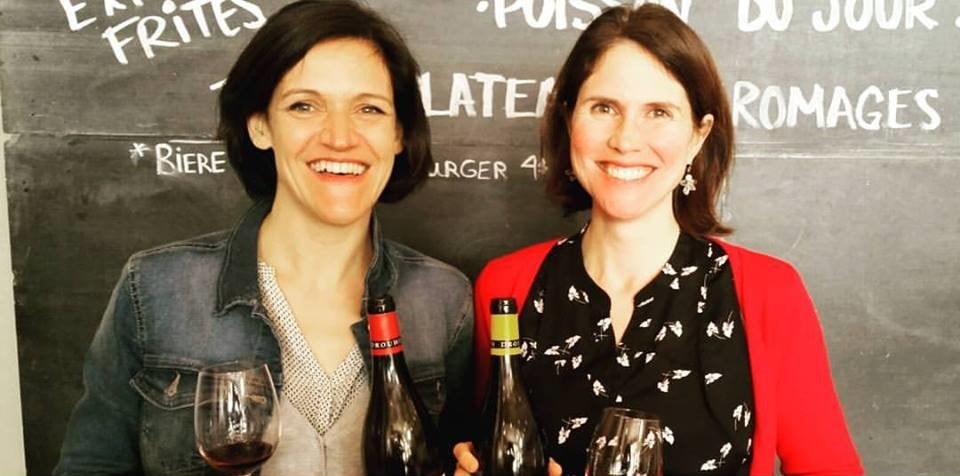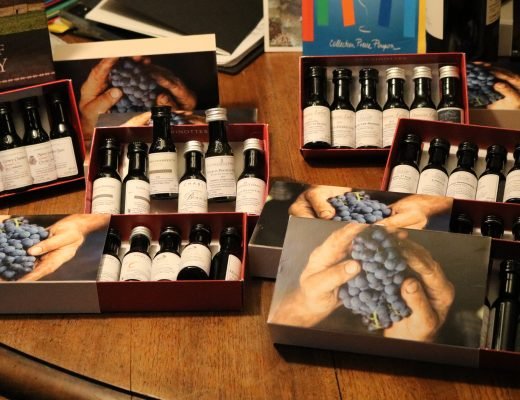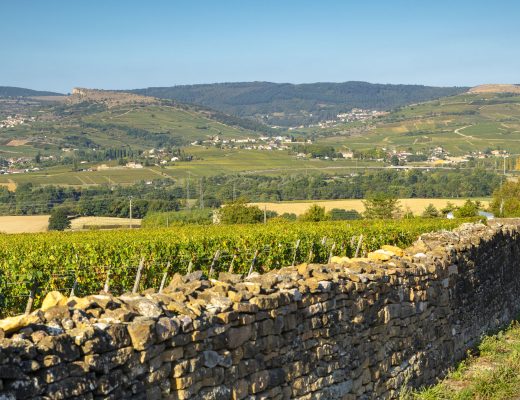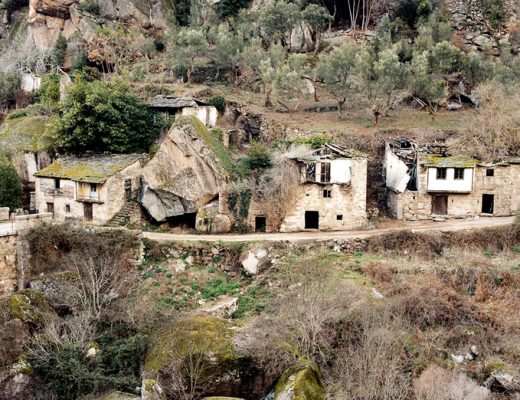The snow was coming down fast and furious but I trudged onwards, tightening the hood of my parka around my frozen cheeks. Had it been another day, I might have slunk back to the comforting warmth of my office. But today was different. I was headed for a tasting and lunch with Ludivine Griveau, the new managing director of the Domaine des Hospices de Beaune.
Luckily for me, the weather kept the majority of my less intrepid colleaugues away, allowing me a far cosier encounter than I had anticipated. Over a scrumptious magret de canard and a line up of beautifully precise Burgundies, we settled in for a nice, long chat.
The Hospices de Beaune (often referred to as the Hôtel Dieu) was founded in 1443 as a charitable hospital and refuge following the Hundred Years’ war. The good works of the almshouse attracted many generous benefactors who, over more than five centuries, have bequeathed substantial land holdings. Today, the estate consists of 60 hectares of mainly premier and grand cru vineyards dotted through out the Côte de Beaune and Côte de Nuits.
The Hospices de Beaune was founded in 1443 as a charitable hospital and refuge.
In 1859 the tradition of a yearly wine auction was established, to sell the wines of the Hospices and raise money for the hospital. Since the construction of a new, modern hospital in the early 1970s, the Hôtel Dieu has become a museum, but the winemaking activities and charitable deeds of the Hospices de Beaune continue.
The wine trade elite gather from around the globe in Beaune every 3rd Sunday of November to attend the auction, and bid on barrels of storied appellations like Clos de la Roche and Corton Charlemagne. In the days leading up to the main event, the Hospices cellars are opened for public, barrel tastings to allow clients to select the cuvées they wish to purchase. No other Burgundian estate is so closely or widely scutinized, making the Domaine des Hospices de Beaune something of a standard bearer for the quality of the region.
No other Burgundian estate is so closely or widely scutinized, making the Domaine des Hospices de Beaune something of a standard bearer for the quality of the region.
The office of managing director of the Hospices involves overseeing the vineyards and winemaking for the estate. Given the international attention, this is a daunting task for even the most experienced vigneron. In 2014, long time director Roland Masse announced his retirement, and the search for a worthy successor was launched. The process took nine months, with over fifty candidates vetted, before a victor was named: Ludivine Griveau.
Not since co-founder Guigone de Salins ran the Hôtel Dieu in the 1400s (after the death of her husband, Nicolas Rolin) has there been a woman at the helm of the Hospices de Beaune. And certainly not in the role of head winemaker! Historically, women weren’t even allowed in the wineries during the fermentation period for fear that their “monthly visitor” would turn the wine sour. Thankfully those days are gone, and the number of celebrated female winemakers in Burgundy is growing steadily. However, old habits die hard and I definitely felt a lingering sense of machoism during my years in Beaune.
Not since Guigone de Salins ran the Hôtel Dieu in the 1400s has there been a woman at the helm of the Hospices de Beaune.
I therefore applauded the choice of the Hospices board of directors, and went into my meeting with Ludivine predisposed to champion her appointment. It quickly became clear however, that she doesn’t need the backing of female solidarity to legitimize her role. Engaging, articulate and incredibly passionate, Ludivine brings with her a solid foundation of education and experience. She spent 4 years working as a viticulturist for the famed Domaine Jacques Prieur, before heading up the winemaking team at Maison Corton-André for 10 years.
Over this period, she worked in almost every appellation where the Hospices owns vines. The varied terroir of each parcel hold no secrets for her, giving her an incredible advantage in running the Hospices estate. Today, she manages a team of 23 staff, who each tend to just over 2 hectares of vines. She also travels the world to promote the domaine’s wines and the charitable aim of the estate.
When asked what her objective for the estate is, 5 to 10 years down the road, she didn’t hesitate. ‘Perfection!’. Such a bold claim demanded further explanation, so she quickly expanded on her theme. The wines of the Hospices, once purchased in barrel mid-November, are transferred to selected wineries and négociant houses for the rest of their barrel maturation and bottling. The final wines will of course vary depending on the cellar master’s methods. The Domaine des Hospices’ role is to provide optimally ripe, healthy grapes that are vinified in such a way as to elicit wines of surpassing elegance and finesse. This is her aim.
The Domaine des Hospices’ role is to provide optimally ripe, healthy grapes … of surpassing elegance and finesse. This is her aim.
As any self-respecting French vigneron will tell you: ‘Les meilleurs vins sont fait dans les vignes’ (the best wines are made in the vineyards), meaning that it is the quality of the ripened grape that defines how good the wine will be. All 60 hectares of the Hospices estate are farmed sustainably; a method generally called lutte raisonnée. Ludivine has injected a seemingly subtle, but important difference with her team; a practice she calls ‘lutte réfléchie’. Instead of simply tempering the use of non organic inputs, she insists that they really stop and think about each potential treatment and what possible alternatives could be employed.
It is this exacting attention to detail that sets her apart. She gives a wry chuckle and admits that she drives her team crazy sometimes with her exhaustive decision making process. This attitude does not falter in the winery. ‘Pinot Noir is an incredibly delicate grape, that requires careful attention and a soft touch in the cellar’ she asserts. She started her first harvest season by explaining the concept of gentle punch downs to her staff; the idea being to limit extraction to just the right tannic balance.
Over the course of our meal, we shared a steely, mineral-edged St. Romain blanc (cuvée Menault) 2014 and a silky, elegant Monthélie rouge 1er cru “les Duressesses” (cuvée Lebelin) 2011 both masterfully aged by J. Drouhin. The pièce de résistance followed, by way of a ripe, powerful, richly textured Mazis-Chambertin Grand Cru (cuvée Madeleine Collignon) 2009. These wines ably represented the standard of quality for which the Domaine des Hospices de Beaune is renowned.
It will be a little while yet before the Hospices wines crafted by Ludivine are released. I await my first tasting with anticipation! Perhaps the fact that she began during the highly acclaimed Burgundy vintage of 2015 is an omen of good things to come…






No Comments